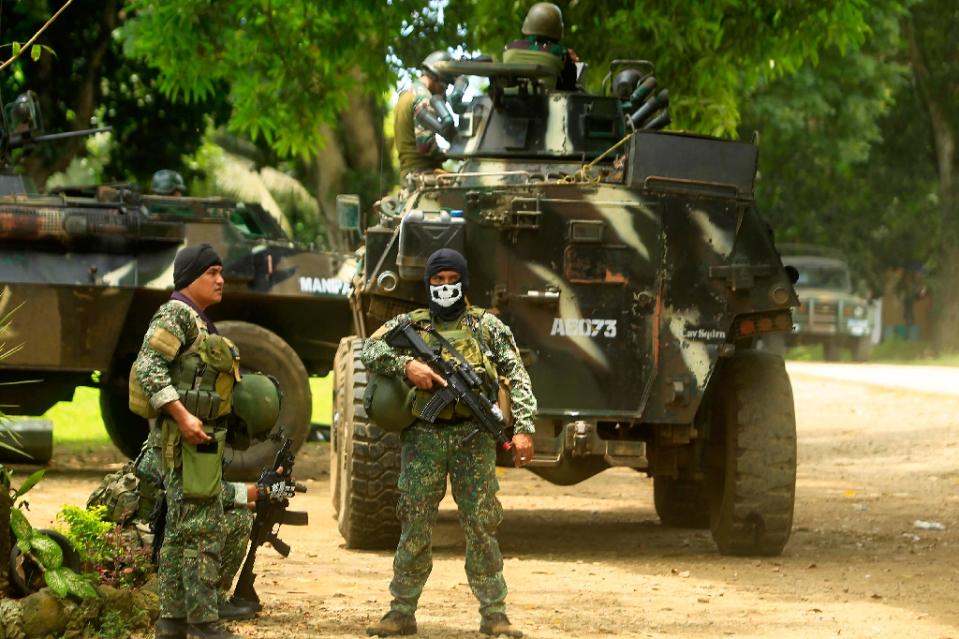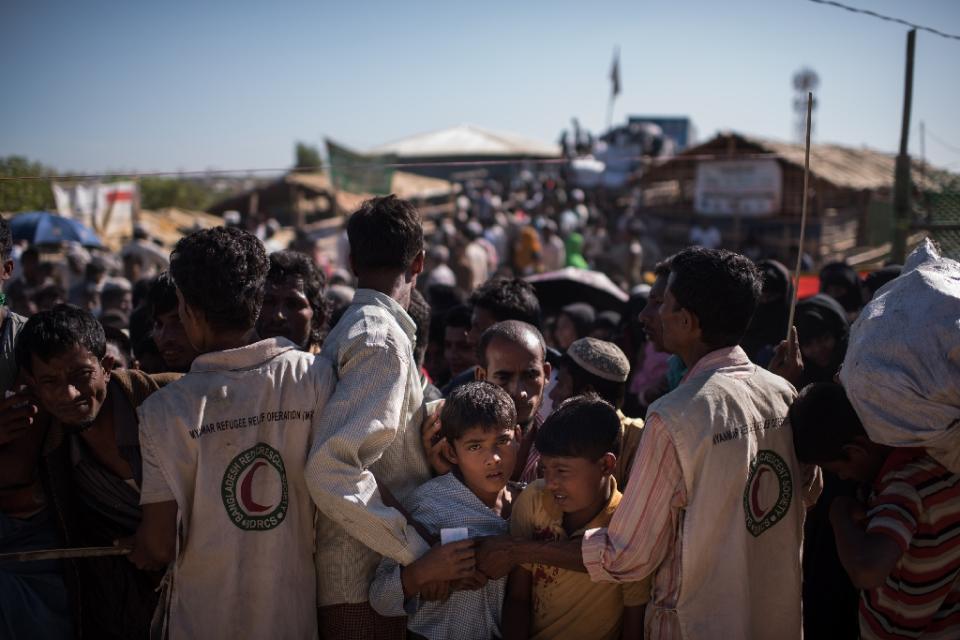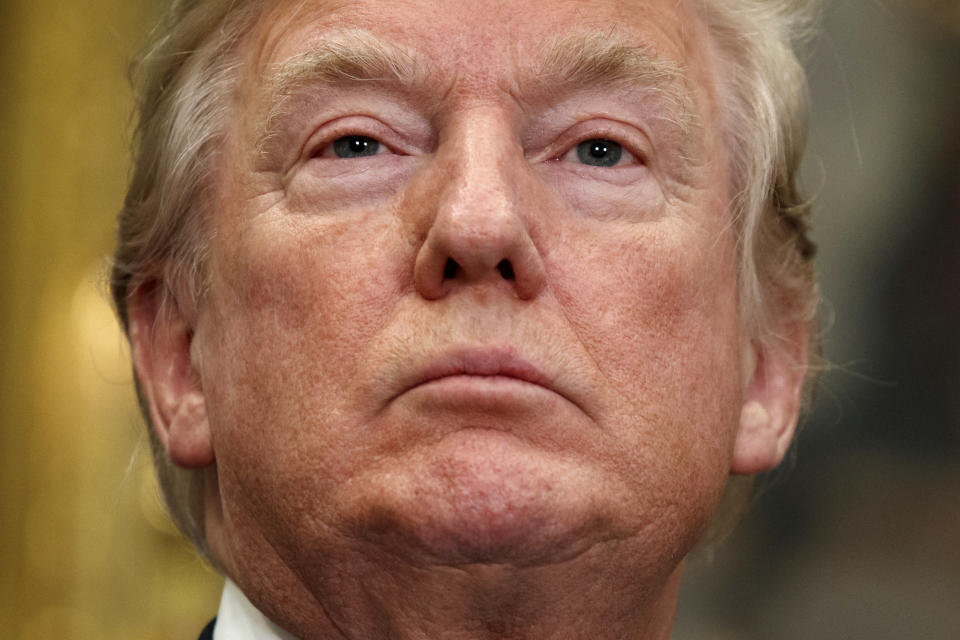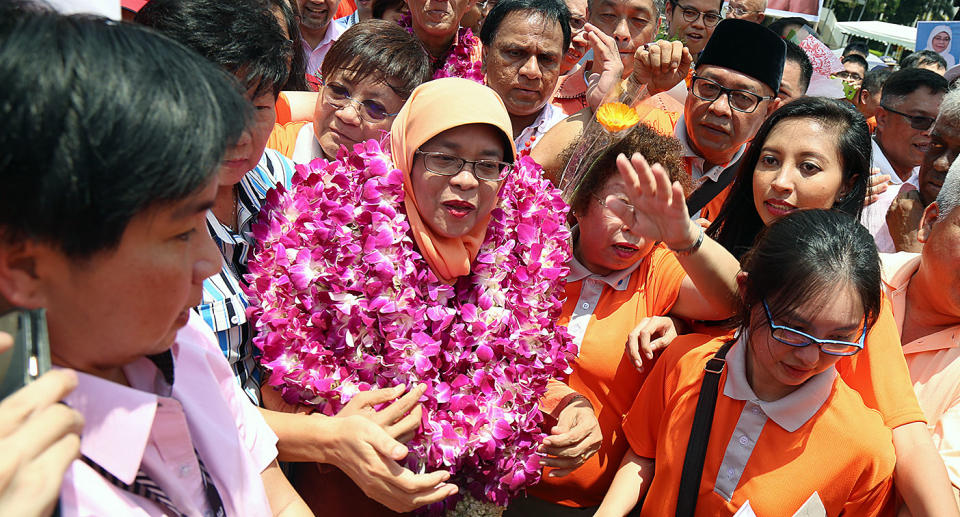Top 10 Singapore searches in 2017
122017 has been a year of controversies that kept Singaporeans on the edge of their seats, from an explosive feud among members of the first family to the country’s first presidential election reserved for Malay candidates. Yahoo Singapore rounds up the top 10 searches of the year.
10. Harvey Weinstein

The downfall of one of the most powerful men in Hollywood began with a New York Times expose, with detailed allegations of sexual assault and harassment against him by, among others, actresses Rose McGowan and Ashley Judd. The allegations stretch back three decades.
Since then, dozens of other women have stepped forward with similar accusations against Harvey Weinstein, including high-profile names such as Gwyneth Paltrow, Angelina Jolie and Cara Delevingne.
But it is not just about the 65-year-old: he has been the catalyst for the #MeToo movement, urging ordinary men and women to tell their own stories of assault and abuse. Besides other big names in Hollywood such as Oscar-winner Kevin Spacey, prominent figures such as renowned journalists Charlie Rose and Matt Lauer have also lost their jobs due to such allegations.
9. North Korea

A relic of the 20th century, the enfant terrible of international politics remains the last surviving Cold War frontier and a consistently destabilising presence on the Korean peninsula. The nation of 25 million has been through famines, natural disasters, the end of the Cold War and the passing of two of its leaders, and still survived well into the 21st century.
Of late, there are renewed fears of a war breaking out between the two Koreas, amid US President Trump’s taunting of Kim Jong-un on social media. Since February this year, North Korea has test fired 23 missiles over 16 tests. This is a result of Kim amping up the country’s nuclear programme since taking power in 2011.
In 2016, the Hermit Kingdom also claimed to have developed a hydrogen bomb, though this is considered unlikely by experts. Nevertheless, most analysts believe that it likely possesses a dozen or so nuclear bombs.
8. Abu Sayyaf

Abu Sayyaf, an Islamist militant group operating in and around the islands of Jolo and Basilan, has been a thorn in the flesh of the Philippine government since its inception in 1991. Considered a terrorist group by many countries, it has carried out several large-scale attacks in the Philippines. It is also notorious for kidnapping foreign nationals for ransom, and it has engaged in criminal activities such as drug trafficking.
In 2017, Abu Sayyaf made headlines for its involvement in the Battle of Marawi. Following the death of its long-time leader Isnilon Hapilon, some analysts have speculated that this is the end of the group. But Abu Sayyaf has gained a reputation for resilience, and it still has a membership of hundreds.
7. Rohingya crisis

Unrest in Myanmar’s northern Rakhine state has led to what is called the world’s fastest developing refugee crisis: since August, some 626,000 Rohingya refugees have fled across the border to neighbouring Bangladesh, to escape what they say is extreme persecution from the military.
There have been widespread reports of atrocities committed by Myanmar’s security forces, while international aid groups struggle to cope. Myanmar’s de facto leader and human rights icon Aung San Suu Kyi has also seen her reputation take a beating for failing to publicly condemn the military’s actions against the Rohingya.
Meanwhile, refugees continue to cross the border into Bangladesh daily.
6. Kim Jong-un

The second child of the late Kim Jong-il has inherited several things from his father, above all else a nuclear arsenal, and the ability to make the international community sit up and take notice.
Since taking power as North Korea’s leader after his father’s death in 2011, the younger Kim has also displayed a singularly ruthless streak. He is said to have executed his uncle Jang Song-thaek in 2013, as well as members of Jang’s extended family.
But the world was stunned in February 2017 when Kim’s half brother Jong-nam was allegedly assassinated at Kuala Lumpur International Airport by two women using a VX nerve agent. Kim is widely believed to have ordered his older sibling’s death.
5. Rodrigo Duterte

Eighteen months into his tenure, Philippine president Rodrigo Duterte remains a divisive political figure.
The 71-year-old has launched a highly controversial anti-drug campaign that has claimed the lives of thousands. Duterte has also openly made crude, and sometimes inflammatory comments about, among others, women, the United States and the Catholic Church.
Perhaps most significantly, Duterte has also moved his country closer to China and away from the US. On the issue of territorial disputes in the South China Sea, he has agreed to hold direct negotiations with the Middle Kingdom, despite a push for ASEAN to hold collective negotiations with China.
But despite a recent dip in his approval ratings, Duterte retains popular support among his people. A recent survey revealed that the president’s net satisfaction rating fell to 48 per cent in September, from 66 percent in June.
4. Donald Trump

Donald Trump, a man who might be called the first Twitter president, has inspired reams of newsprint and endless articles about his year-old presidency. From calling North Korean leader Kim Jong-un “rocket man” to labeling CNN “fake news” to lashing out at numerous critics on Twitter, the 45th American president is, at the very least, never boring.
But there has been increasing concern about the 71-year-old’s unpredictable, sometimes reckless, behaviour. High-profile political appointments have exited his Cabinet and White House on a regular basis. Trump, who has faced accusations of sexual assault in the past, also openly supports Alabama senatorial candidate Roy Moore, who stands accused by multiple women of sexually harassing and assaulting them while they were teenagers decades ago.
But the biggest shadow over the Trump administration may well be the ongoing investigation into alleged Russian meddling in the 2016 presidential election, led by special counsel Robert Mueller. Former National Security Advisor Michael Flynn, a Trump appointee, has confessed to lying to the FBI in its investigation and may well implicate other top Trump administration officials, including Trump’s own daughter and son-in-law.
3. Halimah Yacob

What many saw as the inevitable finally happened on 13 September as former Speaker of Parliament Halimah Yacob was formally inaugurated as president-elect of Singapore. It sparked overwhelmingly negative online sentiment as Halimah assumed what former presidential candidate Tan Cheng Bock labeled the “most controversial presidency” in Singapore’s history.
While Yahoo News Singapore confirmed in July that Halimah would make a bid for the office of president, the 63-year-old had remained reticent for months before finally confirming her decision to run in August. And while the election was reserved for Malay candidates, Halimah was ultimately the only candidate certified to run by the Presidential Elections Committee, leaving prospective candidates Salleh Marican and Farid Khan out in the cold.
The unhappiness on the ground was such that PM Lee and his deputies felt moved to defend the reserved presidential election at various grassroots events after Halimah’s inauguration. The true political cost of the presidential election is yet to be seen.
2. Marawi battle

On 23 May, the city of Marawi, on the island of Mindanao, became the battleground for a five-month-long showdown between Philippine government security forces and militants associated with the Islamic State (IS). In the process, more than a thousand security forces, militants and civilians were killed, with hundreds of thousands more civilians displaced.
It began with a government offensive in Marawi to capture Isnilon Hapilon, leader of the IS-affiliated militant group Abu Sayyaf. Things quickly escalated as militants occupied the city. Among the countries that pitched in to help out Philippine government forces were Singapore, the United States, Australia and China.
On 17 October, after the deaths of militant leaders Hapilon and Omar Maute, Philippine president Rodrigo Duterte declared that Marawi had been liberated from “terrorist influence”.
1. Lee Hsien Loong

The private affairs of the Lees, who have dominated the Singapore establishment for half a century, had always remained behind closed doors. But that all changed on 14 June when Prime Minister Lee Hsien Loong’s siblings Hsien Yang and Wei Ling denounced him in a joint statement posted on social media, accusing him of abuse of power and of pursuing a “personal agenda”.
At the heart of the Lee siblings’ dispute: the former family home at 38 Oxley Road, which their late father and former prime minister Lee Kuan Yew had wanted demolished. While the PM denied the allegations, Hsien Yang told Yahoo News Singapore that his brother had changed his position on the status of the house after agreeing to respect their father’s wishes.
Singaporeans were left transfixed as accusation and counter-accusation followed before the PM addressed the allegations in a two-day Parliamentary session. Shortly after, PM Lee’s siblings declared a truce and said they welcomed the prospect of talks with their elder brother. In his latest comments on the saga, PM Lee said that the dispute was “in abeyance”.


